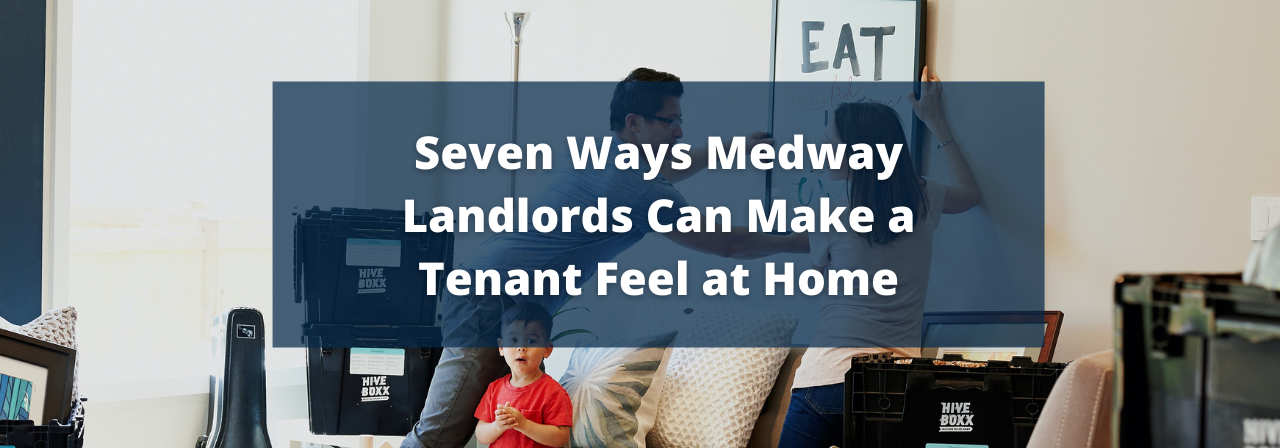We look at a new report that details how Medway landlords can develop a long and lucrative partnership with their tenants in this three-minute read.
What is the key to a successful landlord-tenant relationship? The University of Stirling believes it has found the answer to a riddle that has perplexed property experts for ages.
Making a Home in the Private Rented Sector, a paper from the university, claims that making a tenant feel at home is the key to a long and successful property arrangement.
After all, if a tenant feels safe and secure, they will be happier and healthier, as well as more inclined to look after the home and stay for the long haul.
Isn't that the Holy Grail for any property manager? That doesn't want a dependable tenant who cleans up after themselves, pays their rent on time, and stays for years?
According to the survey, there are seven things landlords may do to help a tenant feel at ease.
Maintain the condition of your property.
Why should anyone else take care of your stuff if you don't? Set the tone for the tenancy by making sure the home is in good shape at the start. Invest in energy-saving measures like draught-proofing and insulation; your tenants will thank you in the winter.
Make repairs as soon as possible and at a high standard.
When a tenant reports a problem, act fast. Your tenant will be less inclined to report difficulties in the future if you dither (which means a minor problem could snowball into a major repair job).
Don't make snap judgments about potential tenants.
You may have a preconceived notion of what constitutes the "ideal tenant," but refrain from making judgments based on age, wealth, or other factors.
Avoid imposing broad restrictions on children and pets.
Landlords who refuse to let children, cats, dogs, ferrets, or hamsters live with them may be missing out. When a family or pet owner settles into a home, they tend to stay longer since they don't want to deal with the trouble of transferring, which means a flexible landlord can benefit from a steady long-term income.
Negotiate over the interior design of your property.
We're not proposing that you give a tenant carte blanche to give the place a full Laurence Llewelyn-Bowen makeover, but you should carefully consider any redecorating request before replying. A tenant who can make your place feel like home will stay for a longer period of time. They might also do a good job and add value to your home.
Be respectful and helpful.
By being respectful and helpful, you can keep the lines of communication open. You don't have to become best friends with your tenants (in fact, we'd prefer it if you kept it completely professional), but be considerate of your tenants' sentiments, especially when it comes to inspections.
Wherever possible, provide longer leases with steady rentals.
Consider extending the tenancy if things are going well. You'll both know where you stand in the long run if you do it this way.
Contact us at Medway Premier Homes if you have any questions about establishing a positive tenant/landlord relationship.



 By
By 



Share this with
Email
Facebook
Messenger
Twitter
Pinterest
LinkedIn
Copy this link